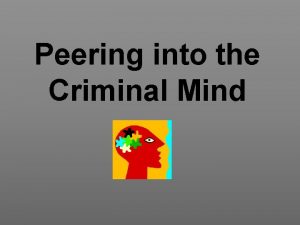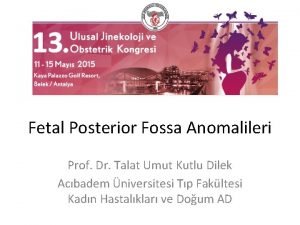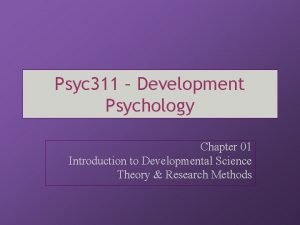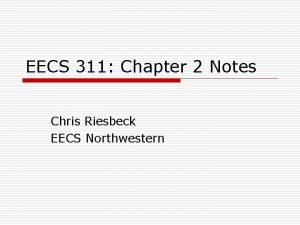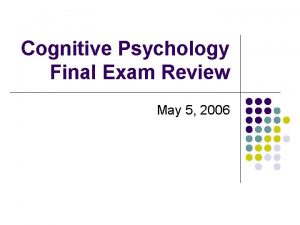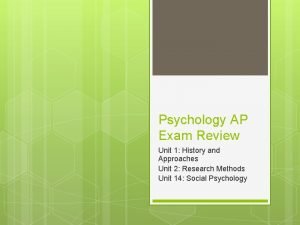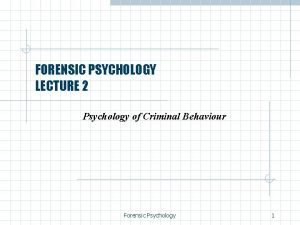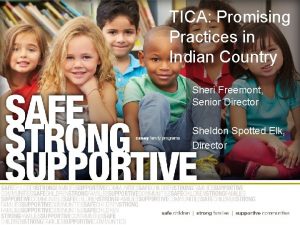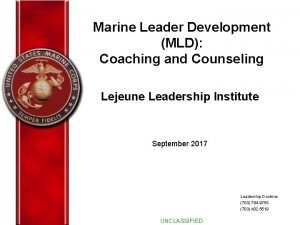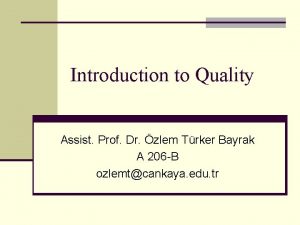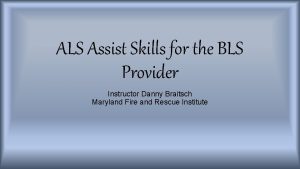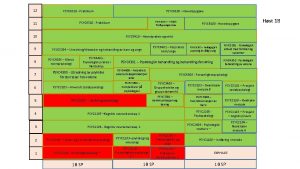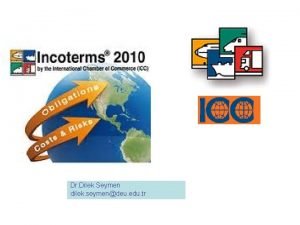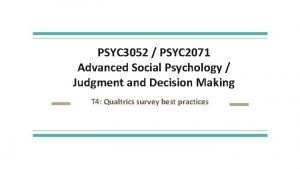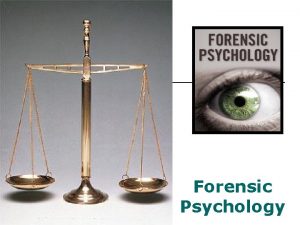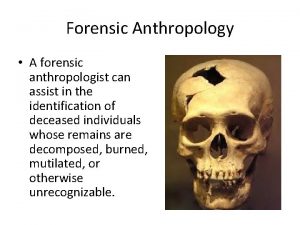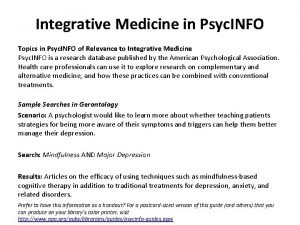PSYC 493 FORENSIC PSYCHOLOGY Assist Prof Dilek ELK





























































- Slides: 61

PSYC 493: FORENSIC PSYCHOLOGY Assist. Prof. Dilek ÇELİK

• • Syllabus What is forensic psychology? What is crime? Crime Statistics

Attention!!! • Attendance: 5% - Apart from the general attendance policy, you will lose 1% for each missed class day. If you do not attend 5 lectures, you will get 0 from the this part. • Do not sign for your friends to the attendance sheet. • Do not take a photo or audio/video record during the course without permission. • At the end of the semester, please do not send e-mails to bargain about your letter grades; even if it is just; • ‘Ama yarım puanla kaçırıyorum hocam’

Assigned Book

Definition of Forensic Psychology • … branch of applied psychology which is concerned with the collection, examination and presentation of psychological evidence for judicial purposes. • What is missing from that definition?

Definition of Forensic Psychology Forensic psychology deals with the psychological aspects of legal processes, including applying theory to criminal investigations, understanding psychological problems associated with criminal behaviour, and the treatment of criminals. • British Psychological Society (2017) Forensic psychologists are scientist-practitioners. They apply psychological knowledge, theory and skills to the understanding and functioning of legal and criminal justice systems, and to conducting research in relevant areas. They often work in criminal, civil and family legal contexts and provide services for litigants, perpetrators, victims, and personnel of government and community organisations. • Australian Psychological Society (2017)

Who is a forensic psychologist? Forensic Psychologist !?

Who is a forensic psychologist? • Psychology and the law are very different disciplines although both try to understand human nature. Their ways of understanding are not the same and sometimes they are incompatible. • Determinants of human behavior • Tolerance for indecision • Arriving at the truth

Forensic Psychologists • An understanding of the achievements and potential achievements of the application of psychology to: • • – criminal investigation processes; – legal processes; – custodial processes; – treatment processes (for both offenders and victims).

Forensic Psychologists • Who are their main target groups? • • – offenders (whether or not mentally disordered); – victims; – witnesses; -- investigators.

Forensic Psychologists • An understanding of the practical aspects of forensic psychology in terms of the following: • – different demands for assessment; • – processes of investigation, prosecution and defense; • – decision making in respect of innocence, guilt, sentencing, custody, treatment and rehabilitation; • – approaches to assessment; • – professional criteria for report production and giving of testimony.

Educational Background… Forensic Psychologist !? • Psychology (B. A) • Forensic Psychology (M. A. ) • Psychology (B. A. ) • M. A degree from another track (clinical, developmental, cognitive…) • Forensic Psychology (Ph. D)

Educational Background… • Forensic Psychology • Legal Psychology • Criminal Psychology • Investigative Psychology • Clinical Forensic Psychology • Psychology and Law • Criminology • Victimology

Forensic psychologist who works for the legal system/ Psychologist who is not mainly working for the legal system but can testify /write a report for the court Psychologist who got his/her M. A. or Ph. D degree from another track (e. g. Clinical psychology) but works for the legal system

With whom do they collaborate with? It is a team work

WHERE DO THEY WORK? CRIMINAL COURT CIVIL COURT/FAMILY COURT POLICE OFFICE PROBATION SERVICES PRISON HIGH SECURITY MENTAL HOSPITALS UNIVERSITIES NGOs

WHAT DO THEY DO IN AN APPLIED SETTINGS? • INTERVIEWING • ASSESSMENT &EVALUATION • WRITING REPORT about…. • • • Criminal Responsibility (Insanity Defense) Malingering Commitment to mental hospitals Criminal Profiling & Risk Assessment Probation services Reliability of testimonies (victim, witness and the offender) False allegations & false confessions Evaluations of juveniles accused of criminal acts Hostage and crisis negotiation Jury Selection ? !- Not applied to Turkey

WHAT DO THEY DO IN AN APPLIED SETTINGS? • INTERVIEWING • ASSESSMENT &EVALUATION • WRITING REPORT about…. • • Domestic Violence & Protection Measures Child Abuse and Neglect Cases Child Protection Measures and Residential Care Child Custody Decision in Divorce Cases Visitation Risk Assessment Adoption Readiness Evaluations Development of Family Reunification Plans

Expert Witness • Fact witness – can only testify about direct observations • Expert witness – is expected to offer opinion and testify for the court to help them on decision. • Establishing expert status • • • Education and training Relevant experience Research and publications Licensing Special knowledge in applying psychological principles

Expert Witness • Must help the court understand evaluate evidence or determine a fact at issue • Experts can by asked to testify by the court or by counsel of either defendant or plaintiff • Judge decides if an expert witness can claim expert status

Admissible Assessments • Preferred: • Psychopathy Checklist-Revised (PCL-R) • MMPI-2 • Wechsler Scales • Dismissed: • Projective Assessment

SO… • Should you be a forensic psychologist? • • • Legal knowledge Skills in interviewing Skills in assesment Strong verbal communication & writing skills Taking alternative explanations into account and being objective • Not the best option for those…. • High level of anxiety • High level of prejudice toward offender groups • Not able to deal with traumatic experiences

Crime Statistics • What is the source of your information about the rates of crime? • Is it increasing or decreasing?

Crime Statistics • Personal victimization • What is the most common type of crime? • News-selective & sensational and some of them are underrepresented

Victimization Study

Police Records

Statistical Yearbook-TRNChttp: //www. devplan. org/Ist_yillik/IST-YILLIK-2017. pdf

TURKEYhttp: //www. adlisicil. adalet. gov. tr/Resimler/Sayfa. Dokuman/2082019153842 istatistik 2018. pdf

CRIME TRENDS • Comparison by time • Years. . . • Comparison by location • Cities • Countries

CRIME TRENDS

CRIME TRENDS

CRIME TRENDS

Crime Statistics

Real Crime Rates=Official Crimes+ Visible (reported) Crimes +Dark Side of the Crime Emniyet Verileri Savcılık ve Açılan Dava Sayısı Mahkemelerde Sonlandırılan Dava Sayısı Prison Statistics Mağduriyet Anketleri – Öz-bildirim Anketleri

Types of Crime Data • Official – UCR (Uniform Crime Reports), NIBRS in US (The National Incident-Based Reporting System), TUİK in Turkey • Submitted by official agencies (police, courts, corrections) • Self-Report – NYS • Interviews with prisoners or citizens (non-clinical sample) who admit their own criminality • Victim – NCVS • Interviews with citizens who reveal their own victimization

Uniform Crime Reports (UCR) • A large database compiled by the FBI of crimes reported and arrests made each year throughout the U. S. • Collected from local law enforcement agencies and published yearly- voluntary- represent 94% • Accuracy is somewhat suspect as research indicates less than 40% of all criminal incidents are reported to the police • Validity issues: reporting practices, law enforcement practices, methodological issues.

Official crime statistics – Pros and Cons Advantages: • Aggregate trends across time and space • Data on clearance rates • Info on law enforcement personnel • Easy to collect • Can show trends changes per years • Relatively inexpensive Disadvantages: • Dark figure of crime • Unreported • Victimless • Dependent upon recording practices of police • Jurisdictional variation • Subject to direct manipulation • Why? ? ? !!!

Self-Report Surveys • A research approach that asks subjects to describe, in detail, their recent and lifetime participation in criminal activity. • Surveys typically involve sampling, which refers to the process of selecting for study a limited number of subjects who are representative of entire groups sharing similar characteristics, called the population. • Participants are asked to describe in detail, their recent and lifetime participation in criminal activity.

Self-Report Data - NYS National Youth Survey (NYS) • Anonymity and Confidentiality encourages accurate disclosure. Still they may not trust you, and confess their serious crimes. • Focuses on juvenile delinquency • (Why? ? ? !!!)

NYS – Pros and Cons Advantages: • Dark figure of crime • Demographic information • Easy method • Etiology of crime (perceptions, attitudes, behaviors) • Theory testing Disadvantages: • No standardized measure • Focus on minor status offenses • Sample bias • Inaccurate reporting • Honesty, recall • Fairly expensive • Reliability and validity

National Crime Victimization Survey (NCVS) • To address the non-reporting issue of the UCR, the federal government sponsors this annual comprehensive, nationwide survey of victimization in the United States. • Validity issues: overreporting due to victims’ misinterpretation, underreporting due to embarrassment, inability to record personal criminal activity of those interviewed, sampling errors • Murder not included, for obvious reasons

NCVS – Pros and Cons Advantages: • Demographics on victims • Dark figure of crime • Cost of crime • Public conceptions of crime and police • Characteristics of victims and offenders • V-O Relationship • Protective measures taken • Distribution of crime in time and space Disadvantages: • Inaccurate reporting • Time in sample bias • Response bias • Method of interview • Interviewer effect • Movers and stayers • Series victimization • Missing populations • Expensive

Victimization Studies • Pros • Larger Sample Size-The International Crime Victimisation Survey (2001) compared countries in different parts of the world including Australia, Austria, Belgium, Canada, England Wales, Finland, France, Germany (the West prior to reunification), Italy, Malta, the Netherlands, New Zealand, Northern Ireland, Norway, Scotland, Spain, Sweden, Switzerland the United States. • Cons • Victimisation studies may not deal with so-called victimless crimes • The survey mostly involved adults of 16 years and above. • Sensitive topics like sexual crimes

Closing… • Practice exam question: • Be able to compare and contrast each method of data collection, each type of research and each source of crime data • Which source of crime data is the best? Why? Be sure to justify your answer with examples.

Evaluating Crime Data • Each source of crime data has strengths and weaknesses • All sources record similar trends regarding personal characteristics of serious offenders, and when and where the crime occurs • Sources are reliable indicators of changes and fluctuations in yearly crime rates

Secondary Sources of Crime Data • • • Cohort Research: Longitudinal and Retrospective Experimental Research Observational Studies and Interviews Meta-Analysis and Systematic Review Data Mining Crime Mapping

What is crime? • Is there a universal definition of crime?

Crime is not only about criminal behaviour, it is a complex social phenomena. • • • what laws apply; • what the set of circumstances surrounding the events is; • what the public thinks about crime; • what the victim thinks about crime; • what the ethos of the policing system is; • what the system for dealing with psychiatric cases is; • who decides whom to prosecute; • the rules governing court procedure; • the skills of the lawyer; • the characteristics of the judge;

Crime is not only about criminal behaviour, it is a complex social phenomena.

What is crime? • A crime is any act or omission that is forbidden by law (or penal code) as a violation of the public interest. • Although the actual victim of a crime is often a person, legally the victim is the community. • By definition, therefore, a crime involves social harm and requires vindication through a public process. • An important aspect of crime is punishment. Whereas a person who commits a civil wrong may have to pay damages or perform some specific act to compensate for the wrong, a person convicted of a crime is punished. Punishment can take many forms, all of which carry one essential characteristic that distinguishes criminal from civil wrongdoing- the condemnation and stigma that accompanies conviction of a crime. • What about restorative justice?

Basic Elements of Crime Criminal Culpability-Responsibility • • • 1. The actus reus. 2. The mens rea. 3. A unity of actus reus and mens rea. 4. Causation. 5. Resulting social harm

The Physical Act: Actus Reus • The actus reus is the physical action that a person must take in order to be responsible for a criminal offense. • Any act (commision) or omission containing the ingredients of causation and social harm • Mandatory Reporting of Child Abuse • Child Neglect of Parents • The actus reus usually consists of a voluntary action. That is, except for a few limited circumstances, people are not responsible for actions over which they have no control. • Eg: If that person were at a grocery store shopping, had a seizure, and as a result caused property damage, she probably would not be criminally responsible.

The Physical Act: Actus Reus • Thoughts versus Acts • Thinking about committing a crime is not a crime • Words as an Act • Threats • Freedom of Speech? • Possession as an Act • Substance

The Mental State: Mens Rea • Actus reus makes up only one part of the criminal culpability requirement. • Only in rare circumstances can someone be convicted of a crime without both the physical act and the guilty mind. (Statutory rape, for example, is a strict liability crime in which only the physical act needs to be proved to obtain a conviction. ) • Mens rea is the mental state that a person has at the time that he or she performs the acts that constitute the commission of a crime. • It is about intent but not motive (mostly about emotions and underlying leading factors)

The Mental State: Mens Rea • Specific intent • The intention to commit an act for the purpose of doing some additional future act, • to achieve some further consequences, • or with the awareness of a statutory attendant circumstance. • Eg: Burglary • General intent • The intent only to do the actus reus of the crime, • without any of the elements of specific intent. • Eg: Statutory Rape

The Mental State: Mens Rea • Transferred intent • A doctrine that holds a person criminally liable even when the consequence of his or her action is not what the actor actually intended. • Eg: Accidentally killing someone else

Model Penal Code Classifications of Mental States • “a person is not guilty of an offense unless he acted purposely, knowingly, recklessly or negligently, as the law may require, with respect to each material element of the offense.

Model Penal Code Classifications of Mental States

Mens Rea – Legal Defenses An offender may not be considered responsible or is considered less resp. if he or she: • • • Acted under duress Was underage Was insane Acted in self-defense or defense of a third party Was entrapped Acted out of necessity

Causation and Concurrence • There are two steps in determining whether an act caused a specific result: • 1. The accused person’s act must be the cause-in-fact of the result. • 2. If it was, then the accused person’s actions must also be the proximate cause of the result.

Homework 1 • Select a crime type (theft, murder, sexual abuse…etc. ) • Try to find statistical data about it (TUIK, http: //www. adlisicil. adalet. gov. tr/adlicalisma. html, NGO reports (Baro etc. ), Academic Publications…) • Present the data (statistics) you found and critically evaluate whether you think they are representing the true nature of crime or not)
 Forensic psychiatry vs forensic psychology
Forensic psychiatry vs forensic psychology Prof dr dilek erdem
Prof dr dilek erdem Phace sendromu
Phace sendromu Klaritomisin
Klaritomisin Thomas mocker and thomas stewart
Thomas mocker and thomas stewart 493 sda hymnal
493 sda hymnal Sda hymn 647
Sda hymn 647 Round 493 295 to the nearest ten thousand
Round 493 295 to the nearest ten thousand Round 493 295 to the nearest ten thousand
Round 493 295 to the nearest ten thousand 619 rounded to the nearest ten
619 rounded to the nearest ten Psyc 1504 learning journal unit 1
Psyc 1504 learning journal unit 1 Psyc 311
Psyc 311 Yerkes dodson lov
Yerkes dodson lov Eecs 311
Eecs 311 Psyc 1504 final exam
Psyc 1504 final exam Psyc 1020
Psyc 1020 Psyc 311 study guide
Psyc 311 study guide Psyc info
Psyc info Psyc info
Psyc info Psyc info
Psyc info Sfu tableau access
Sfu tableau access Psyc 1504 final exam
Psyc 1504 final exam Physiology ergonomics
Physiology ergonomics Psyc 2120
Psyc 2120 Psyc 2307
Psyc 2307 Forensic psychology serial killers
Forensic psychology serial killers Forensic psychology serial killers
Forensic psychology serial killers Typoology
Typoology Forensic psychology lecture
Forensic psychology lecture History of criminal psychology
History of criminal psychology Introduction to forensic psychology bartol pdf
Introduction to forensic psychology bartol pdf History of forensic psychology
History of forensic psychology Branches of forensic science
Branches of forensic science Expert forensic psychology witness
Expert forensic psychology witness History of forensic psychology
History of forensic psychology Serial killers forensic psychology
Serial killers forensic psychology What is sexual script
What is sexual script Forensic psychology
Forensic psychology Elk river lutheran
Elk river lutheran Elk zijn huis zaventem
Elk zijn huis zaventem Tlingit and haida
Tlingit and haida Logstash geo_point
Logstash geo_point Orphan boy and elk dog
Orphan boy and elk dog Elk river lutheran church
Elk river lutheran church Elk vs wilkins apush
Elk vs wilkins apush Elk grove regional scholarship foundation
Elk grove regional scholarship foundation Elkridge landing middle school
Elkridge landing middle school Franklin high school egusd
Franklin high school egusd Elk stack demo
Elk stack demo Voor elk probleem is er een oplossing
Voor elk probleem is er een oplossing Voor elk probleem is er een oplossing
Voor elk probleem is er een oplossing Elk nedir
Elk nedir Redoc ransomware
Redoc ransomware Elk grove village youth baseball
Elk grove village youth baseball Elk stack for monitoring
Elk stack for monitoring Emory cr assist
Emory cr assist Why do we use coaching to develop marines
Why do we use coaching to develop marines Quality assist
Quality assist Leslie miller md
Leslie miller md Cisco smart assist
Cisco smart assist Peer assist
Peer assist Als assist
Als assist
